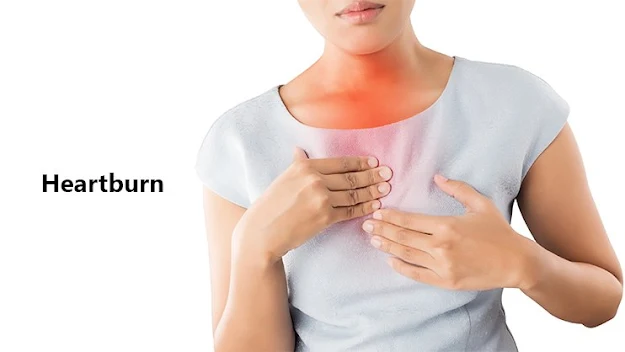Heartburn: Symptoms, Causes, Risk factors, Complication, Home Remedies
Heartburn is a burning pain in your chest, just behind your breastbone. The pain is often worse when lying down or bending over.
Occasional heartburn is common and no cause for alarm. Most people can manage the discomfort of heartburn on their own with lifestyle changes and over-the-counter medications.
Heartburn
that is more frequent or interferes with your daily routine may be a symptom of
a more serious condition that requires medical care.
SYMPTOMS OF HEARTBURN
Symptoms of heartburn include:
- A burning pain in the chest that usually occurs
after eating and may occur at night
- Pain that worsens when lying down or bending over
CAUSES OF HEARTBURN
Heartburn
occurs when stomach acid backs up into the tube that carries food from your
mouth to your stomach (esophagus).
Normally
when you swallow, a band of muscle around the bottom of your esophagus (lower
esophageal sphincter) relaxes to allow food and liquid to flow down into your
stomach. Then the muscle tightens again.
If the
lower esophageal sphincter relaxes abnormally or weakens, stomach acid can flow
back up into your esophagus (acid reflux) and cause heartburn. The acid backup
may be worse when you're bent over or lying down.
RISK
FACTORS
Certain foods and drinks can trigger heartburn in some people, including:
- Spicy foods
- Onions
- Citrus products
- Tomato products, such as ketchup
- Fatty or fried foods
- Peppermint
- Chocolate
- Alcohol, carbonated beverages, coffee or other
caffeinated beverages
- Large or fatty meals
- Being overweight or pregnant also can increase
your risk of experiencing heartburn.
COMPLICATIONS
Heartburn
that occurs frequently and interferes with your routine is considered
gastroesophageal reflux disease (GERD). GERD treatment may require prescription
medications and, occasionally, surgery or other procedures. GERD can seriously
damage your esophagus.
LIFESTYLE AND HOME REMEDIES FOR HEARTBURN
Lifestyle changes can help ease heartburn:
- Maintain a healthy weight. Excess pounds put
pressure on your abdomen, pushing up your stomach and causing acid to back
up into your esophagus.
- Avoid tightfitting clothing, which puts pressure
on your abdomen and the lower esophageal sphincter.
- Avoid foods that trigger your heartburn.
- Avoid lying down after a meal. Wait at least
three hours.
- Avoid late meals.
- Elevate the head of your bed if you regularly
experience heartburn at night or while trying to sleep. If that's not
possible, insert a wedge between your mattress and box spring to elevate
your body from the waist up. Raising your head with additional pillows
usually isn't effective.
- Avoid smoking. Smoking decreases the lower
esophageal sphincter's ability to function properly.
ALTERNATIVE MEDICINE
Anxiety and stress can worsen heartburn symptoms. Some complementary and alternative treatments may help you cope with anxiety and stress. If your heartburn is worsened by anxiety and stress, consider trying:
Aromatherapy
Gentle
exercise, such as walking or riding a bike, but avoid vigorous exercise, which
can worsen heartburn
Hypnosis
Listening
to music
Massage
Relaxation
techniques, such as guided imagery












